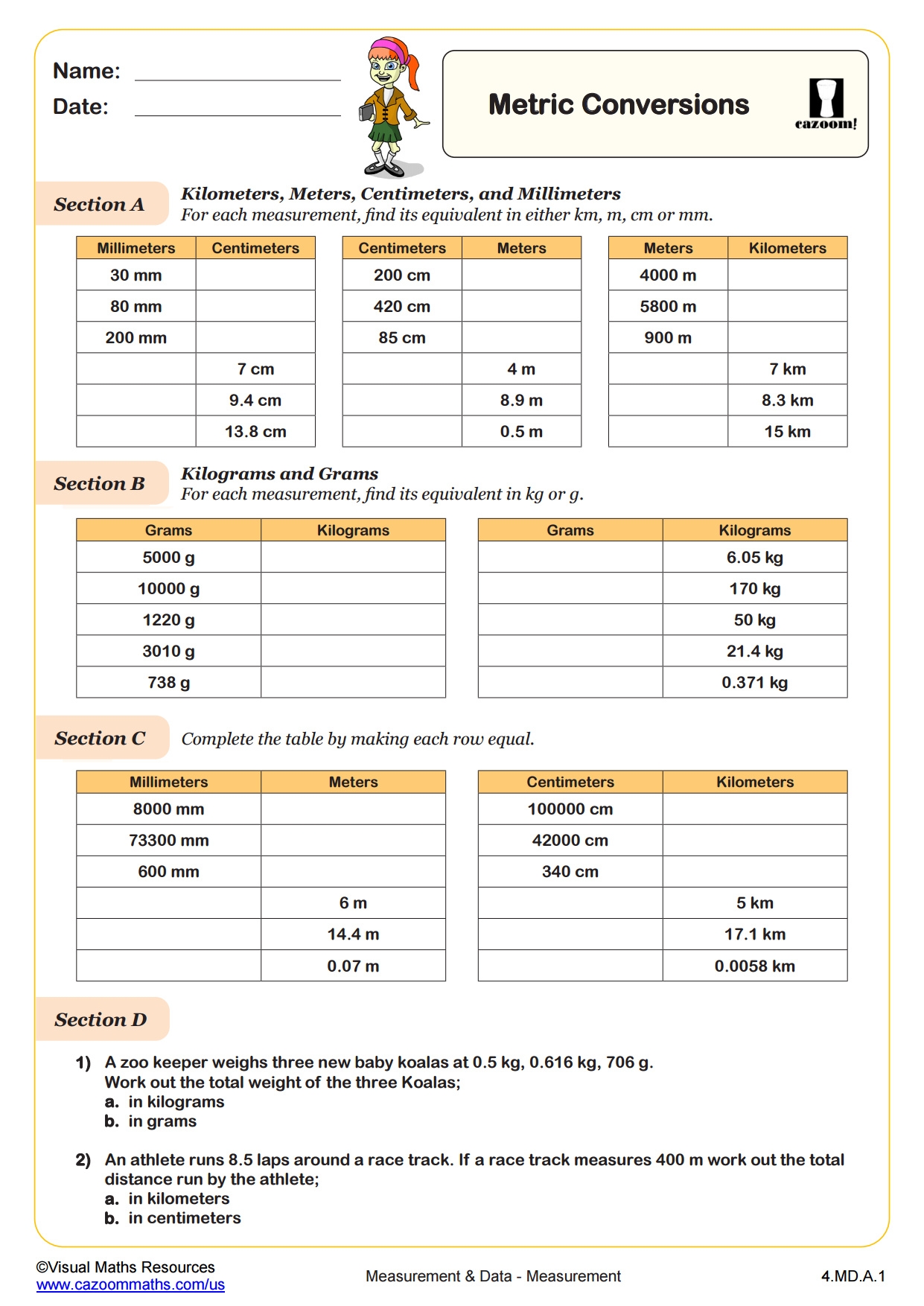Understanding metric conversions is an essential skill in the field of mathematics and science. The metric system is used worldwide for its simplicity and consistency. Converting between different units of measurement within the metric system involves using conversion factors and multiplying or dividing by powers of 10. A worksheet on metric conversions can help students practice and master this important concept.
By working through a worksheet on metric conversions, students can develop their problem-solving skills and gain confidence in converting between units of measurement. This type of practice allows students to apply their knowledge in real-world scenarios, such as converting distances, weights, volumes, and temperatures. With regular practice, students can become proficient in converting between different metric units.
One common type of question on a metric conversions worksheet is converting between different units of length, such as meters, centimeters, and kilometers. Students may be asked to convert a distance given in meters to centimeters or kilometers, or vice versa. These types of questions require students to understand the relationships between different units of length and apply conversion factors to solve the problem.
Another type of question on a metric conversions worksheet may involve converting between units of weight, such as grams, kilograms, and milligrams. Students may need to convert a weight given in grams to kilograms or milligrams, or vice versa. This type of question helps students practice converting between different units of weight and reinforces their understanding of the metric system.
Additionally, a metric conversions worksheet may include questions on converting between units of volume, such as liters, milliliters, and cubic centimeters. Students may be asked to convert a volume given in liters to milliliters or cubic centimeters, or vice versa. These questions help students develop their skills in converting between different units of volume and reinforce their understanding of the metric system.
In conclusion, a worksheet on metric conversions is a valuable tool for students to practice and master the skill of converting between different units of measurement within the metric system. By working through a variety of conversion problems, students can improve their problem-solving abilities and gain confidence in applying their knowledge to real-world scenarios. With regular practice, students can become proficient in converting between different metric units and develop a strong foundation in mathematics and science.
